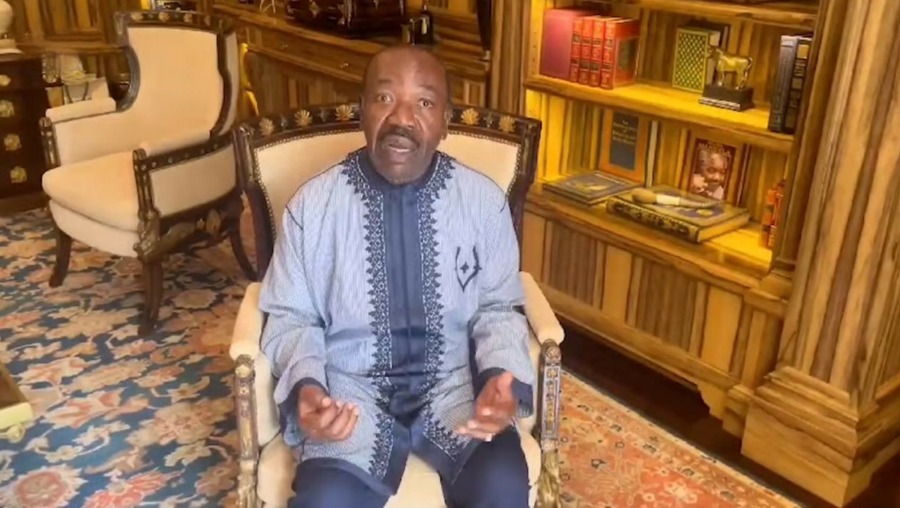In a stunning turn of events, Gabon, a country in West Africa, has found itself thrust into the global spotlight as its military officers announced a successful coup, detaining President Ali Bongo. This move has raised questions about the Bongo family’s six-decade rule, French influence, the motivations behind the military’s actions, and the implications for both Gabon’s domestic and international dynamics.
As news of President Ali Bongo’s ousting spread like wildfire, an electrifying wave of jubilation and hope surged through the streets of Gabon, uniting citizens in a shared moment of celebration. Joyful chants and exuberant dances reverberated through city squares, capturing the euphoria of a nation yearning for change. With banners bearing slogans of freedom and justice held high, the once-muted voices of the people found resonance in the collective exaltation, symbolizing a newfound optimism for a future unshackled from the shadow of prolonged rule.
President Ali Bongo comes from a prominent political dynasty that has ruled Gabon for nearly six decades. Following in the footsteps of his father, Omar Bongo, who served as president for 42 years, Ali Bongo took office in 2009. His ascent to power was not without controversy, with allegations of electoral fraud and discontent among a portion of the Gabonese population. France, the former colonial power, has had a significant influence on Gabon’s political landscape, owing to historical ties. French interests and investments have long been intertwined with the nation’s governance, economy, and security.
French influence on President Ali Bongo’s rise to power has been a subject of debate. Critics argue that French support for the Bongo family’s continued rule has undermined Gabonese democracy and perpetuated a neocolonial relationship. While France officially maintained a stance of non-interference, allegations of its involvement in supporting the Bongo regime have persisted, further fueling tensions within the country.
The military coup in Gabon, which resulted in President Ali Bongo’s detention, represents a significant shift in the country’s political dynamics. The motivations behind the military’s actions are complex and multifaceted. The coup could be seen as a response to growing discontent among segments of the population, who have become disillusioned with the Bongo family’s prolonged rule and allegations of corruption. Widespread poverty and limited opportunities for the Gabonese people have fueled a desire for change, as highlighted by President Bongo’s distress call.
Moreover, the military’s move to seize power might also be driven by ambitions to assert their own influence and leadership, seeking to redefine Gabon’s political trajectory. As an institution, the military often plays a crucial role in African politics, both as a stabilizing force and a source of power.
The military’s intervention in Gabon raises questions about the future stability and governance of the nation. The country’s institutions, which have been closely intertwined with the Bongo family’s rule, now face uncertainty as the military steps in to fill the power vacuum. Gabonese citizens, who have long desired political change, now hope for a more inclusive and accountable government that addresses their needs and aspirations.
On a broader scale, the coup reflects a recurring trend in Africa, where countries seek to assert their sovereignty by reducing external influences, particularly from former colonial powers. This drive for self-determination is a response to historical power imbalances and a desire to determine domestic affairs independently. The events in Gabon also resonate with broader African aspirations for self-governance and the pursuit of a more equitable future.









